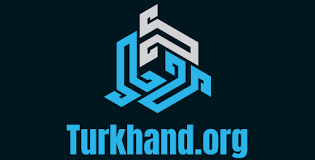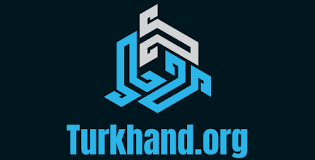Introduction
When it comes to online trading, one of the most important decisions a trader makes is choosing the right platform. The platform acts as your gateway to the markets, providing tools for analysis, order execution, and risk management. Among the many platforms available, the MetaTrader suite stands out as the industry standard. But when comparing MetaTrader 4 vs 5, many traders are left wondering: which one is better?
Both MT4 and MT5 are developed by MetaQuotes, and while they share similarities, each caters to different trading styles and needs. In this blog, we’ll break down the features, pros, and limitations of both platforms so you can decide whether MT4 or MT5 is the right fit for your trading journey.
A Quick Overview of MetaTrader 4
Launched in 2005, MetaTrader 4 (MT4) quickly became the most popular trading platform in the world. It was designed primarily for forex trading but is also widely used for commodities and indices. MT4’s reputation rests on its simplicity, reliability, and a vast ecosystem of indicators, scripts, and automated trading systems known as Expert Advisors (EAs).
Key highlights of MT4:
-
User-Friendly Interface: Intuitive layout suitable for beginners.
-
Expert Advisors: Automated trading systems that execute strategies without manual intervention.
-
Custom Indicators: Thousands of third-party indicators available online.
-
Low Resource Requirements: MT4 runs smoothly even on older computers and mobile devices.
Because of its long-standing presence, MT4 has built a loyal community of traders, developers, and brokers, making it a timeless choice for many.
A Quick Overview of MetaTrader 5
Introduced in 2010, MetaTrader 5 (MT5) was designed as the next-generation upgrade to MT4. However, MetaQuotes did not simply replace MT4—it created a more advanced platform that extends beyond forex to support stocks, commodities, futures, and CFDs.
Key highlights of MT5:
-
Multi-Asset Trading: Access to more markets than just forex.
-
Advanced Charting Tools: 21 timeframes compared to MT4’s nine.
-
Economic Calendar: Built-in calendar for fundamental analysis.
-
Faster Order Execution: Designed for improved speed and efficiency.
-
More Order Types: Six pending order types compared to MT4’s four.
MT5 was created to meet the growing demands of traders who wanted greater functionality, deeper analysis, and faster access to global markets.
MetaTrader 4 vs 5: Key Differences
Now, let’s compare MetaTrader 4 vs 5 across the most important categories.
1. Market Coverage
-
MT4: Primarily for forex and CFDs.
-
MT5: Multi-asset platform, offering forex, stocks, commodities, and futures.
If your focus is solely on forex, MT4 might be enough. However, if you want to diversify into multiple asset classes, MT5 is the better choice.
2. Order Execution and Types
-
MT4: Four pending order types (Buy Limit, Sell Limit, Buy Stop, Sell Stop).
-
MT5: Six pending order types, including Buy Stop Limit and Sell Stop Limit.
MT5 offers more flexibility in setting complex trading strategies.
3. Timeframes and Charting
-
MT4: Nine timeframes for charts.
-
MT5: 21 timeframes, including two-minute, eight-hour, and yearly charts.
Traders who rely heavily on technical analysis may prefer MT5 for its broader range of timeframes and tools.
4. Programming Language
-
MT4: Uses MQL4, designed for simple strategies and indicators.
-
MT5: Uses MQL5, a more advanced and flexible programming language.
MQL5 is powerful for professional developers but can feel more complex for beginners.
5. Hedging and Netting
-
MT4: Supports hedging (holding buy and sell positions simultaneously).
-
MT5: Supports both hedging and netting (consolidated positions).
This makes mt4 vs mt5 more versatile for traders who use multiple strategies.
6. Community and Support
-
MT4: Larger user base, countless forums, and third-party add-ons.
-
MT5: Growing community but still smaller compared to MT4.
Beginners may find more free resources and support with MT4.
Pros and Cons of MetaTrader 4
Pros:
-
Easy to use for beginners.
-
Low system requirements.
-
Wide broker support and global recognition.
-
Thousands of free and paid EAs and indicators.
Cons:
-
Limited order types and timeframes.
-
No built-in economic calendar.
-
Focused mainly on forex, with limited multi-asset support.
Pros and Cons of MetaTrader 5
Pros:
-
Multi-asset platform with stocks, commodities, and futures.
-
Faster execution speed.
-
Advanced charting with 21 timeframes.
-
More pending order options.
-
Built-in economic calendar for fundamental analysis.
Cons:
-
Steeper learning curve for beginners.
-
Fewer third-party tools compared to MT4.
-
Not all brokers support MT5 yet.
Which Platform Should You Choose?
The MetaTrader 4 vs 5 debate doesn’t have a one-size-fits-all answer. Your choice depends on your trading goals, experience level, and preferred markets.
-
Choose MT4 if:
-
You are a beginner and want a simple, reliable platform.
-
Your main focus is forex trading.
-
You prefer a wide range of community-developed tools and EAs.
-
-
Choose MT5 if:
-
You want access to multiple asset classes.
-
You rely on detailed technical and fundamental analysis.
-
You prefer faster execution and more flexibility in orders.
-
Many traders even use both platforms, starting with MT4 for its simplicity and later transitioning to MT5 for advanced features.
The Future of MetaTrader Platforms
Despite MT5 being released over a decade ago, MT4 remains incredibly popular. Brokers continue to support it because of the massive user base, while MT5 steadily grows in adoption. As financial markets evolve and traders demand more advanced tools, it’s likely that MT5 will eventually take the lead.
For now, both platforms remain relevant and widely used. The key is not to get caught up in the MetaTrader 4 vs 5 debate, but to choose the platform that best aligns with your trading style.
Conclusion
Whether you choose MT4 or MT5, both platforms provide powerful tools to navigate the financial markets. MT4 is simple, widely supported, and perfect for forex enthusiasts, while MT5 offers more advanced features, faster execution, and broader market access.
See more our website : visit here



